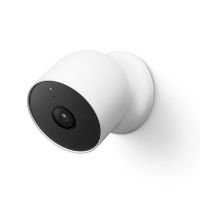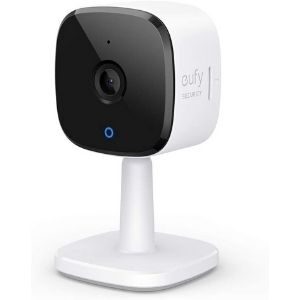You also can’t record people anywhere that is typically considered a private place (e.g. the bathroom). Likewise, you have the right not to be filmed in those same areas. Here are the most common places where a security camera could get you into trouble:
- Bathrooms
- Bedrooms
- Changing rooms
- Locker rooms
- Hotel rooms
"For legal compliance and to avoid unnecessary conflict, homeowners should position cameras facing their own entrances, yards, or shared public spaces. Blocking parts of the view with privacy settings may also be a good idea if neighboring properties are close," Malloy explained. "In the event that a neighbor's behavior seems intrusive— document interactions, and post signs saying "surveillance in use" — it never hurts to scare the incomprehensible. In multiple cases I’ve worked on, good communication and proper camera placement will be the difference between a situation de-escalating quietly or ending up in court."
Kaufmann agrees. "When it comes to neighbors, the rule of thumb is do not point your cameras where they can see inside someone else's home or onto areas where they expect privacy. Courts have backed this up. In State v. McLellan 744 A2d 111 (Vt. 1999) the court found that surveillance aimed directly at a neighbor’s windows could violate privacy rights. The legal concept here is the intrusion upon seclusion tort, which holds that it is unlawful to intentionally intrude physically or otherwise into someone's private affairs in a way that is highly offensive to a reasonable person."
Consent laws dive into whether or not it’s legal to record someone on video or audio without their permission. On the national level, it’s legal to record a conversation—either in person or over the phone—if you have at least one person’s consent. This is called the “one-party consent” law. It means that as long as you are part of the conversation that you’re recording, it’s legal for you to record it.
The one-party consent law doesn’t cover video surveillance, but if there’s a conversation involved, the rule applies. Because most security cameras record audio as well as video, you should operate your camera with the one-party consent law in mind.
"Under federal and most state laws, you are generally allowed to record video on your own property without getting consent as long as you are not recording audio," says Kaufmann. "Audio is where things get trickier. The Federal Wiretap Act 18 USC § 2511 makes it illegal to intercept audio communications unless at least one party consents, though some states require all-party consent. If your camera picks up conversations, you could run into legal issues in those states."
For example, in Washington, D.C., the law follows a one-party consent rule under DC Code § 23–542, says Kaufmann. This means audio recording is legal if one party involved in the conversation consents. You can't legally record private conversations between other people if you are not part of the discussion and neither gave permission.













